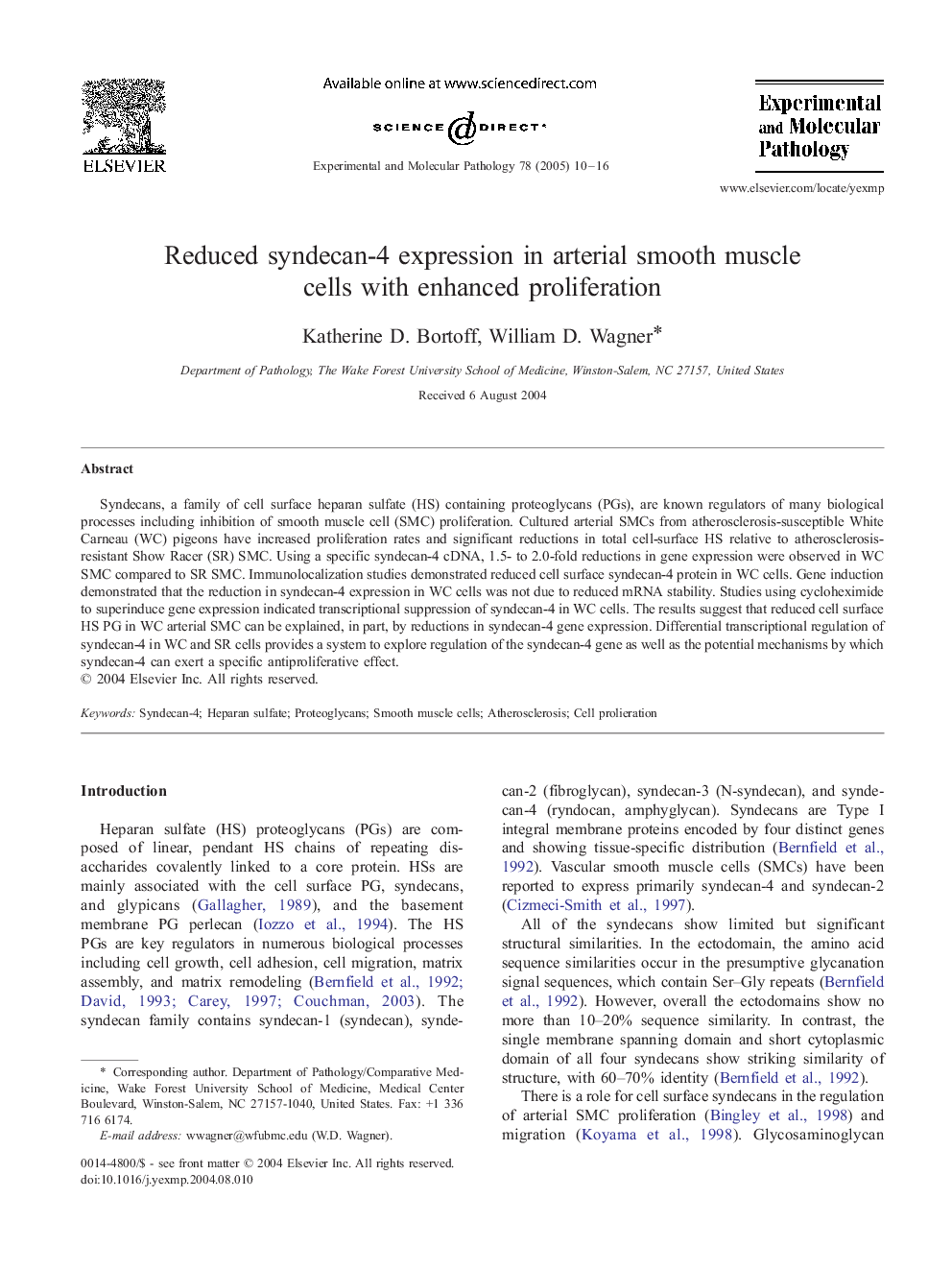| Article ID | Journal | Published Year | Pages | File Type |
|---|---|---|---|---|
| 9102794 | Experimental and Molecular Pathology | 2005 | 7 Pages |
Abstract
Syndecans, a family of cell surface heparan sulfate (HS) containing proteoglycans (PGs), are known regulators of many biological processes including inhibition of smooth muscle cell (SMC) proliferation. Cultured arterial SMCs from atherosclerosis-susceptible White Carneau (WC) pigeons have increased proliferation rates and significant reductions in total cell-surface HS relative to atherosclerosis-resistant Show Racer (SR) SMC. Using a specific syndecan-4 cDNA, 1.5- to 2.0-fold reductions in gene expression were observed in WC SMC compared to SR SMC. Immunolocalization studies demonstrated reduced cell surface syndecan-4 protein in WC cells. Gene induction demonstrated that the reduction in syndecan-4 expression in WC cells was not due to reduced mRNA stability. Studies using cycloheximide to superinduce gene expression indicated transcriptional suppression of syndecan-4 in WC cells. The results suggest that reduced cell surface HS PG in WC arterial SMC can be explained, in part, by reductions in syndecan-4 gene expression. Differential transcriptional regulation of syndecan-4 in WC and SR cells provides a system to explore regulation of the syndecan-4 gene as well as the potential mechanisms by which syndecan-4 can exert a specific antiproliferative effect.
Related Topics
Life Sciences
Biochemistry, Genetics and Molecular Biology
Clinical Biochemistry
Authors
Katherine D. Bortoff, William D. Wagner,
